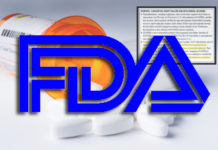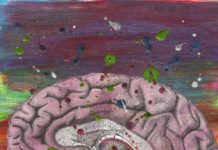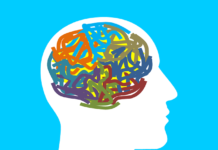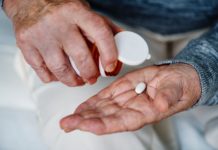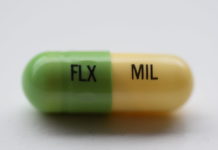New Algorithms Fail to Predict Antidepressant Treatment Outcomes
Researchers suggest that because most antidepressant “success” is due to the placebo effect, they may never find a way to predict outcomes.
No Good Evidence That Antidepressants Prevent Relapse
Trials of antidepressants for relapse prevention are confounded by withdrawal effects caused by the drugs.
Antidepressant Misinformation Promoted on Popular Websites
A new study indicates that popular online resources do not accurately present the scientific evidence on the risks and benefits of antidepressants.
Antidepressant Use Continues to Climb Among Youth on Medicaid
New study finds that Medicaid enrolled youth were 14 times more likely to be on an antidepressant in 2014 than in 1987.
Researchers Find Paroxetine Harms Developing Brain
Researchers at Johns Hopkins test paroxetine on developing brain cells and discover numerous neurotoxic effects.
Suicide Warning on Antidepressant Label is Justified, Researchers Say
Researchers confirm that the suicide warning for antidepressants is justified by the evidence and that claims that the warning is harmful lack support.
An Open Letter to VA Secretary Robert Wilkie: A Plan for Deprescribing Veteran Suicides
Through my research and experiences, I've found that what the Veterans Administration has been doing to fight the veteran suicide epidemic isn't working and appears to be unintentionally exacerbating it. These problems are fixable. But I need your help.
Researchers: Antidepressant Withdrawal, Not “Discontinuation Syndrome”
Researchers suggest that the pharmaceutical industry had a vested interest in using the term “discontinuation” in order to hide the severity of physical dependence and withdrawal reactions many people experience from antidepressants.
Is There a Small Group for Whom Antidepressants Are Effective?
In a new study, researchers found no evidence of antidepressant group variance, which means that there's no particular group of patients who improve more than others on the drug.
Higher Drop-Out Rates for Those Taking Antidepressants
A review of 73 antidepressant studies finds that 12% more people drop out of clinical trials when taking antidepressants than when taking placebo, evidence that many find the adverse effects of antidepressants difficult to tolerate.
Researchers Fail to Predict Antidepressant Treatment Success
In a new study published in JAMA Psychiatry, researchers investigated whether they could use EEG (electroencephalograph) technology to predict whether people would feel better...
The Whistleblower and Penn: A Final Accounting of Study 352
After 18 years, the full story of the scientific corruption in a study of paroxetine for bipolar disorder, and the psychiatrist who blew the whistle.
Researchers Set the Record Straight on Controversial Zoloft Study
An issue of Lancet Psychiatry is devoted to clarifying the lack of efficacy for Zoloft (sertraline).
Prescribing an Epidemic: A Veteran’s Story
Had I known what I know now, I never would have taken any of these drugs, and I absolutely would not have taken a role in which my outreach efforts to get veterans into mental health treatment might place thousands of lives at risk.
How Antidepressants Shape Young Women’s Sense of Self
Young women’s narratives indicate ways antidepressants have shaped their sense of self.
No Matter Which Measure You Use, Antidepressants Aren’t That Effective
Researchers compared the efficacy of antidepressants using different rating scales and found them to be no different—just slightly better than placebo, and not meeting the criteria for clinical significance.
Psychotherapy Less Effective for People in Poverty and Those on Antidepressants
A new study finds poorer depression and anxiety outcomes in psychotherapy for people in economically deprived neighborhoods and those on antidepressants.
Increased Antidepressant Use Does Not Decrease Depression Prevalence in Older Adults
The use of antidepressants has risen quickly among older adults but the rate of depressive symptoms in this population has not declined as a result.
Fear and Belief in “Chemical Imbalance” Prevent People from Coming Off Antidepressants
Researchers interviewed people who were given medical advice to discontinue antidepressants.
Screening + Drug Treatment = Increase in Veteran Suicides
For the past 15 years, the VA's suicide prevention efforts have focused on getting veterans screened and treated for psychiatric disorders, with antidepressants a first-line therapy. This effort has caused veteran suicide rates to steadily rise.
Fluoxetine Not Helpful for Children with Autism
A clinical trial finds Prozac no better than placebo for improving repetitive behaviors.
Researchers Challenge Evidence for Antidepressants in Youth
Researchers shed light on the precarious nature of evidence from efficacy trials of antidepressant medication to treat symptoms of major depressive disorder in children and adolescents.
NICE Guideline Update Acknowledges Severe Antidepressant Withdrawal
A new update to the NICE guideline for depression suggests providers discuss long-term, severe antidepressant withdrawal symptoms.
Clinical Trials Show Antidepressants “Not Beneficial in the Long Term”
Clinical trials also consistently fail to measure and report long-term harmful effects.
Researchers: “Antidepressants Should Not be Used for Adults with Major Depressive Disorder”
A new review, published in BMJ Evidence-Based Medicine, concludes that antidepressants should not be used as the risks outweigh evidence for benefits.






